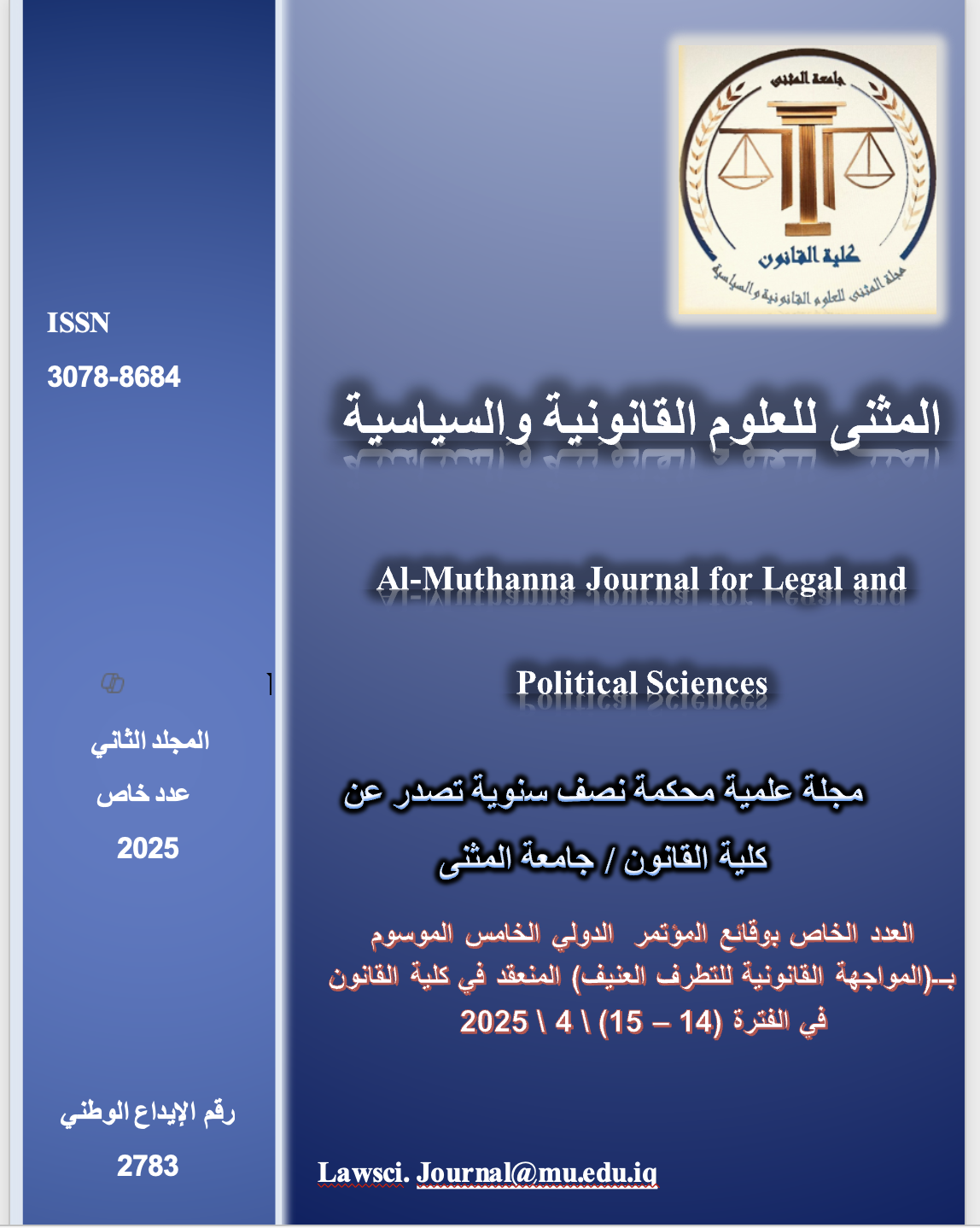The Role of Iraqi Banks and Financial Institutions in Fulfilling International Obligations to Prevent Terrorist Financing
DOI:
https://doi.org/10.52113/08-986Keywords:
: Counter-terrorist financing, International standards (FATF), Money laundering, Financial compliance.Abstract
This research examines the role of Iraqi banks and financial institutions in combating terrorist financing amid regional security and economic threats. It focuses on their adherence to international standards, including FATF directives and UN Security Council resolutions, to prevent financial system exploitation. The study highlights the Central Bank of Iraq’s leadership in anti-money laundering (AML) and counter-terrorist financing (CTF) policies, assessing their alignment with global norms, and reviews internal compliance measures like oversight and suspicious activity detection. It stresses the need for international standards to protect Iraq’s financial reputation and global cooperation, while addressing challenges such as weak infrastructure, low awareness, and poor coordination. Legal gaps and recommendations for enhancing infrastructure, coordination, information sharing, legislation, and training are also discussed.
Downloads
Published
Issue
Section
License
Copyright (c) 2025 م. د. جين ياسر حسين العبودي، م .د. انتصار جعفر خضر (مؤلف)

This work is licensed under a Creative Commons Attribution 4.0 International License.



